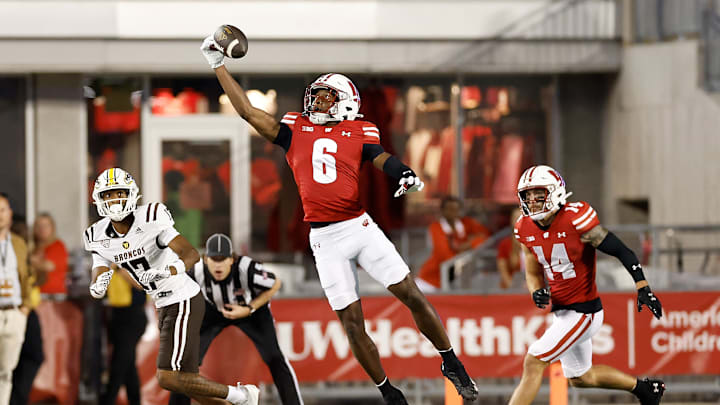Miami’s off-field opener is underway in a Wisconsin courtroom. In June, the University of Wisconsin and its NIL collective VC Connect sued the University of Miami, alleging tortious interference — that Miami “tampered” with former Badgers cornerback Xavier Lucas and induced him to abandon a two-year revenue-sharing/NIL agreement before enrolling at UM in January. The complaint doesn’t name Lucas, referring to him as “Student-Athlete A,” but the facts track his transfer saga. Wisconsin is seeking unspecified monetary damages and a judicial declaration that Miami’s conduct was tampering.
Miami is expected to file a motion to dismiss the Xavier Lucas lawsuit filed by Wisconsin, sources tell @Brett_McMurphy and me for @On3sports.
— Pete Nakos (@PeteNakos_) August 8, 2025
The lawsuit alleged Miami interfered with a binding rev-sharing contract involving the Badgers and DB Xavier Lucas.… pic.twitter.com/Ce5XTcULRG
Miami pushed back last week with a motion to dismiss, arguing Wisconsin’s state court lacks personal jurisdiction over UM (the school isn’t “at home” in Wisconsin) and that the claims fail on the merits. UM’s longtime outside counsel Eric Isicoff says the university conducted “a very thorough internal review” and found no evidence of tampering; Lucas submitted a sworn declaration stating he had no contact with Miami personnel before deciding to leave Wisconsin and that he initiated contact with UM only after disenrolling.
The timeline
Lucas asked to be entered into the NCAA transfer portal in December 2024; Wisconsin refused, citing his newly signed revenue-sharing deal. After negotiations through attorney Darren Heitner, Lucas withdrew from Wisconsin and enrolled at Miami in mid-January 2025, a maneuver reporters believe to be a first: switching schools without ever appearing in the portal because the previous school wouldn’t submit the request. Wisconsin and the Big Ten issued public statements signaling potential action shortly thereafter and the lawsuit arrived June 20.
What Wisconsin alleges
A Miami staffer and prominent UM alumnus met Lucas and family in Florida in December and that Miami dangled a more lucrative compensation package—conduct the school says violated NCAA anti-tampering rules and interfered with its contract. What Miami/Lucas say: the meeting Wisconsin references didn’t happen (they contend Wisconsin is confusing it with a permissible in-home recruitment from Lucas’ high-school year), Lucas received no payments under Wisconsin’s agreement, and his decision to leave was personal—then he contacted Miami as a regular student.
What’s at stake
This is among the first attempts to test whether school-athlete revenue-sharing/NIL contracts (created in the wake of the House v. NCAA settlement framework) can be used to hold athletes in place—or to punish third-party “tampering.” Legal analysts note that while Big Ten templates say these are NIL licenses and not pay-for-play, the agreements often include language about not enrolling elsewhere, raising thorny questions about enforceability and athlete mobility. Regardless of outcome, the case could influence how schools structure buyouts, venue clauses, and anti-tampering provisions going forward.
Bottom line for Miami fans
This is a civil case. Attorneys following the matter stress there’s no direct eligibility risk or NCAA penalties tied to the lawsuit itself. The most plausible exposure is financial if Wisconsin proves damages. For now, Miami is seeking dismissal on jurisdiction and substance and if a Wisconsin judge denies that, the venue fight could continue, potentially with a refiling in South Florida. Until then, Lucas is a Cane, and his on-field story resumes Aug. 31.
